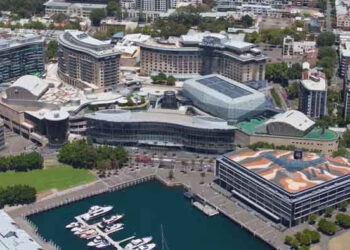Galaxy Entertainment Group reported a 15% increase in EBITDA in the second quarter to HK$3.5 billion (US$452 million) as the company significantly outpaced the Macau market in VIP play for a 16% jump in revenue year on year to HK$18.2 billion ($2.33 billion).
Hong Kong-listed Galaxy (0027.HK) joined SJM Holdings as the only Macau operators to beat analysts’ expectations for the quarter.
“During the quarter Galaxy—unlike its peer group—reallocated resources into VIP and out of mass,” noted Union Gaming Research Macau, which is forecasting a 7.5% increase in VIP revenue for the company in the second half, compared with projected declines across the rest of the market.
Performing counter to recent market trends, VIP volume was up 27% in the 12 weeks through 30th June versus a citywide decline of 6%, while the quarter’s mass-market revenue increase lagged at +21% versus +32%, respectively.
“Galaxy has historically been a very strong VIP operator and clearly continues to be one, in addition, and as other casino concessionaires downsize their VIP operations, we believe Galaxy is a potential new home for any displaced VIP operators,” the brokerage said.
Mass tables generated HK$4.11 billion on a 3% increase in drop. Slot machine handle was up 12% for $432 million, flat with Q2 2013.
EBITDA was up 26% through the first six months of the year to $7.3 billion on a 25% increase in revenue to $38.4 billion, compared to the same period last year. First-half net income was up 29% to $6 billion (US$774 million).
The company plans to pay a special dividend of 45 Hong Kong cents on 31st October.
Galaxy Macau Phase 2 is on track and on budget for a mid-2015 opening, the company said. Across the street, the Grand Waldo, which Galaxy purchased last year and closed for remodeling, is expected to reopen early in 2015. The company also said it expects to begin construction on Galaxy Macau phases 3 and 4 by the end of this year.
Eight thousand workers will be recruited for Phase 2 beginning the end of 2014, the company said, while recently announced increases in employee bonuses and other benefits needed to retain and attract staff amid an acute citywide labor shortage will add about $150 million to quarterly costs and shave 1% to 1.5% off EBITDA margins. Stock options are being considered as an additional incentive.
































